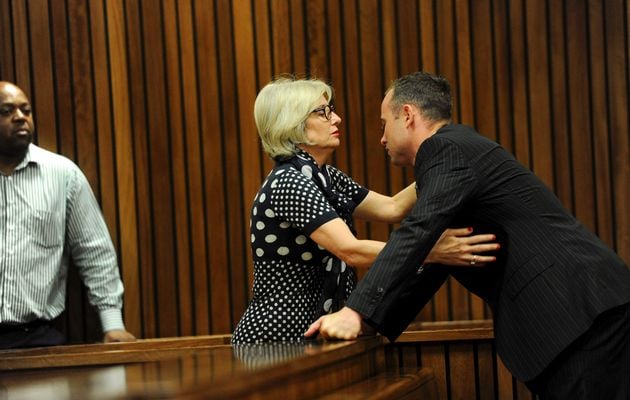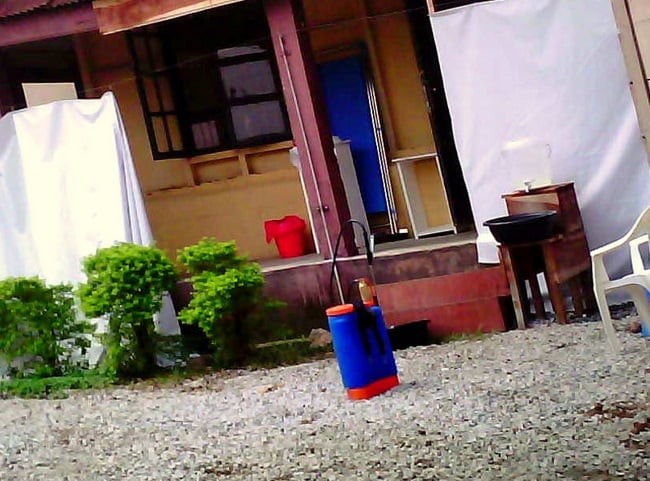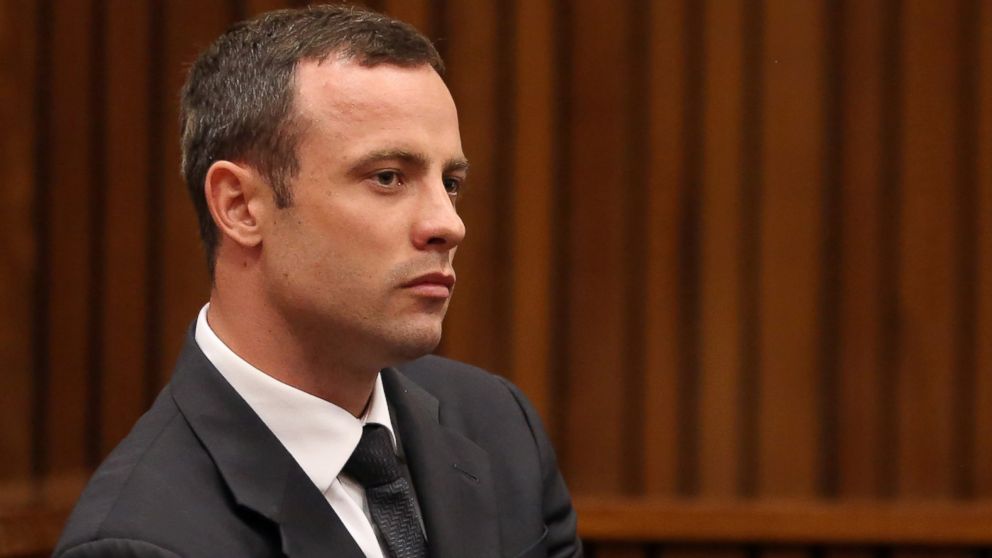Judge Thokozile Masipa pronounced Oscar Pistorius “not guilty of premeditated murder” on Thursday at the South African High court after a three-hour verdict on a trial that has been globally followed.
The verdict by the judge was predicted to have to run into the next day, as she would have to, prior to giving verdict on a case that has been on for over a year, read a summary of 37 witnesses who testified over 39 days. She would make her decisions based on their credibility and reliability, and as well assign weight to their testimonies.
Masipa and her assessor were expected to have spent the past few weeks searching for possible reasonable doubt, if Oscar’s version is possibly true or if the defence had cast enough doubt. She would then convict on four options – murder (premeditated), murder, culpable homicide or acquit, as well as three gun charges (for possession, use of fire arm in public place), and if Oscar’s friend Darren Fresco, who was accused of engineering evidence, would be given immunity. Fresco, who had been requested by Gary Neil to be treated as a ‘204’ witness (i.e. that he gets immunity from prosecution on gun charges) was seen to be pacing the courtroom in anticipation of the verdict.
Oscar is to face two kinds of courts – the court of law and the court of public opinion, although it is uncertain if judgment from the court of public opinion would be handed down today or it had been done months ago. However, the court of public opinion had found Oscar guilty of overacting.
Advertisement
Walking in with a wad of papers in her hand, Judge Masipa started by ordering Pistorius to be seated till she instructed otherwise. There were no ‘airs and graces’, neither were there flowery introductions, as she went straight to the matter of reading out Oscars charges against him. She started by summarising Oscar’s plea explanation he gave at the start of trial in March and the ‘admissions’ – those issues that are common cause or not in dispute between both sides before announcing she would then begin with the summary of events.
Judge Masipa went through the common cause facts – basically the bits that both sides agree on and didn’t argue over before concluding it would be fruitless to recount all the evidence and submissions made by the counsel. She went read out the issues that arose, such as questions relating to the tampering of the crime scene, the length of the missing extension chord and the authenticity of the pictures.
She said these issues had paled into insignificance as the trial went on. If you recollect, Oscar had said in his plea that defence would show tampering and contamination of scene but none of that came forth from a witness, which is a real blow to the defence on the case of ‘tampering’.
Advertisement
The crux of the matter was then divided into three: gunshots, sounds made by cricket bat, and screams in early hours. She then continued on the crucial timeline of events for the morning of the shooting, which is central to Oscar’s defence. after that, she argued on the consideration of alternatives such as why neighbours missed some of the shots, if they were asleep of if they were on the phone.
“The evidence of Michelle Burger and Charl Johnson was correctly criticised in my view as unreliable” Masipa said,
“I don’t think Johnson or Burger were dishonest. They didn’t derive any pleasure in giving evidence,” she continued as she rejected the testimony of Burger and Johnson saying they were crucial to proving “screams before shots”.
Masipa explained that Johnson/Burger weren’t dishonest. They were genuinely mistaken. So it wasn’t a question of credibility or integrity, same with the neighbours. She explained that it was easy for them to mishear because they were “far from the scene”, dismissing it further by saying that without anything to compare the screams to, the neighbors couldn’t say what Pistorius would sound like.
Advertisement
Masipa found that the deceased, Reeva, would not have been able to scream – and not in the manner that the neighbours described hearing, which then begged the question as to why the accused, Oscar, screamed.
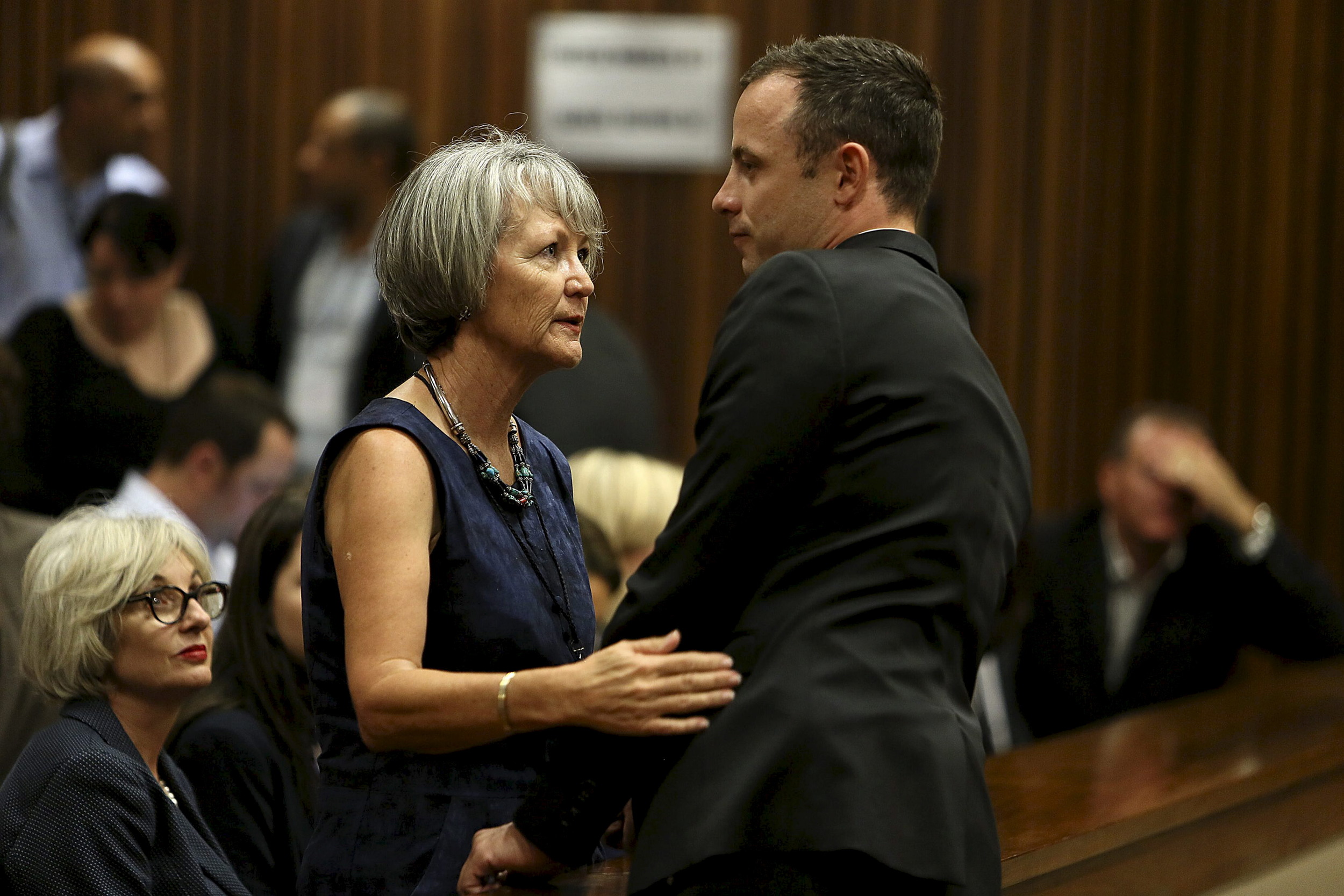 She however did buy the version of ‘when’ Oscar screamed and the chronology of events, addressing the massive media interest in the case and how witnesses followed the developments in the trial. Pinning Darren Fresco’s case to it.
She however did buy the version of ‘when’ Oscar screamed and the chronology of events, addressing the massive media interest in the case and how witnesses followed the developments in the trial. Pinning Darren Fresco’s case to it.
“I venture to say Mr. Fresco was not only witness with that disadvantage. I am of view that some witnesses failed to separate what they knew personally and what they gathered from media,” Masipa said.
She further pointed out the fact that events took place in the wee hours of the morning when witnesses were still “hazy”. She then focused on crucial witness in Dr. Johan Stipp’s defence, dedicating considerable time to discrediting Stipp.
Advertisement
“I don’t believe that Stipp coloured his evidence against the accused. In fact to the contrary, he showed no bias.”
Masipa spoke to the “difficult terrain that court had to traverse to reach conclusion”.
Advertisement
“It would be unwise to rely on witnesses, include defense witnesses, without testing against objective evidence,” she said.
Her decision to rely on objective facts of events, if you recall, was what Barry Roux presented to her in closing.
Advertisement
Masipa places reliance on phone records and technology, continuing the chronology of events, focusing on the defence’s version – shots, Oscar’s screams, then bat. She did not buy the argument that the screams were of a woman. Rather, they were Oscar screaming. But then she found the timeline was consistent with the version of the accused, which then brought up the next question: can Oscar’s version be “reasonably possibly true”?
Masipa believed there could be a number of reasons why Reeva would have taken her phone to the bathroom, possibly for light as the one in there had been broken, dismissing the idea that there were rocky times in the relationship as text messages showed the couple had no history of such.
Advertisement
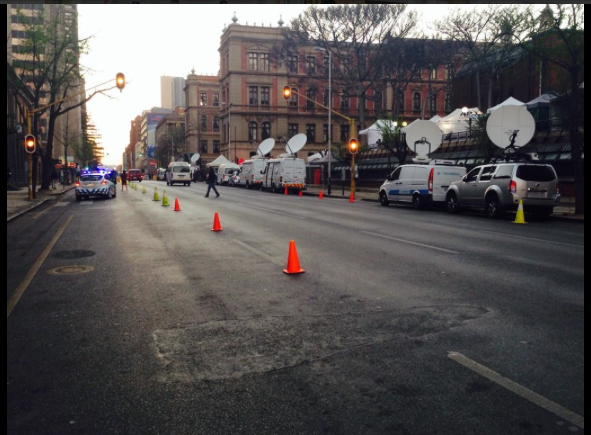 She also addressed the ‘gastric emptying’, saying she did not accept pathologist Saayman’s belief that the only possible inference was that Reeva was up two hours before. She might indeed have grabbed a snack from the fridge few minutes to her death.
She also addressed the ‘gastric emptying’, saying she did not accept pathologist Saayman’s belief that the only possible inference was that Reeva was up two hours before. She might indeed have grabbed a snack from the fridge few minutes to her death.
Masipa placed more credence on the security guard story that all was fine outside Oscar’s house, than neighbour hearing argument before moving on to the defence’s version as to if he genuinely believed there was an intruder? Speaking on how confusing Oscar’s version of events was the case vacillated from ‘accident’ to ‘never intended’. Addressing his change of defence, he mentioned that his intention was not clear from his version.
Going through the reflex action of the accused, the ‘startle’ as explained by Derman and Vorster, Masipa considered the question as to if Oscar may have criminal capacity at the time of the incident? Bringing up arguments about ‘dolus eventualis’.
“Although it wasn’t said explicitly, defence had hallmarks of temporary pathological incapacity,” she explained with referrals from his 30 days at Weskoppies and which came back positive for intent. She however didn’t agree with it.
“He took a conscious decision. He knew where he kept his firearm. He knew where the bathroom was.”
On the case of self-defence, Masipa said the court would apply a subjective test as opposed to objective test.
“This court accepts that Oscar used fight rather than flight as Derman testified,” Masipa said.
Although arguing that he might have done so under his circumstances as handicapped, seeing as women or children would go with the same motive, Masipa said Oscar clearly wanted to use the firearm. Questions whether the intention was to kill or not remain.
Masipa said the deceased was killed under “peculiar circumstances” that do not make sense.
“Why didn’t she hear him scream? Why didn’t he check she was there? Why four shots? On premeditated murder count, evidence is purely circumstantial. (I.e. no Direct evidence)”
Which then led to her pronouncement that the state has not proven beyond a reasonable doubt that the accused is guilty of premed murder. The state said that the “error in objecto”, the error in determination of whom Oscar shot, should not mean that he be acquitted.
Masipa then applied the Reasonable Man test. Did Oscar act, as the so-called ‘reasonable person’ would have?
“The accused has not admitted that he had the intention to shoot and kill the deceased or any other person. His own version was that he genuinely or although erroneously believed there was an intruder in the house. I now deal with dolus eventualis or legal intent. The evidence does not support the state’s contention that this could be a case of dolus eventualis.
After a brief recess, Judge Masipa returned to deal with negligence and the culpable homicide case. She explained that the court must use the test of the Reasonable Man to determine whether Oscar was negligent or not.
“Would a reasonable person in the same circumstances as the accused have foreseen the consequences of his action? The Reasonable Man test is contentious – what is a reasonable man? How is it defined?” Masipa went on to literature on this.
“In my view, act must be dealt with in case by case approach. He could have run to the balcony and screamed. He could have called security.”
She then suggested Oscar had alternatives to going straight to the bathroom with his firearm. Masipa said if Oscar had woken up and found someone over him and opened fire that would have been excusable conduct. She wasn’t convinced that a reasonable person would have responded the way Oscar did, thereby effectively making him fail the Reasonable Man test.
“He chose to use a firearm and he was trained in firearm use. I am of the view that the accused acted too hastily and used excessive force. He acted negligently.”
This however didn’t give anything away as to if the judge found him guilty of the culpable homicide count or not.
With that, she adjourned the case till Friday.
Add a comment
